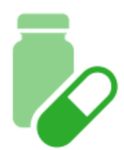Managing Side Effects of Breast Radiation Therapy
←
→
Page content transcription
If your browser does not render page correctly, please read the page content below
RADIATION THERAPY
SYMPTOM MANAGEMENT
Managing Side Effects of
Breast Radiation Therapy
(Includes Radiation Therapy to the Chest Wall)
In this booklet you will learn about:
Common side effects when you receive
radiation therapy to your breast
Tips on managing these side effects
Where to get helpRadiation Side Effects
Side effects caused by radiation therapy to the breast or
chest wall may vary from person to person. These side
effects may be affected by other treatments, such as
surgery, chemotherapy, and medications. In this booklet,
we have listed some of the more common side effects
and helpful tips to manage them. The majority of these
side effects may start near the end of the second week of
your radiation therapy treatments and may continue for
the remainder of your treatment and for about 2-4 weeks
after your treatments are complete. You may experience
other side effects related to your radiation treatment that
are not discussed in this pamphlet. For more information,
please speak to a member of your Care Team.
2Skin Reaction
The skin in the treatment area reacts over time to radiation
and most patients do not notice any changes until about the
second week of treatment. At that time your skin may look
slightly pink and change to a darker pink or brown as the
treatments continue. Along with the changing colour of the
skin, you may also notice the skin start to feel dry, itchy,
sensitive and/or tender. The skin reaction will be at its peak
at about 10-14 days after all your treatments are complete.
How to Take Care of Your Skin During Treatment:
Washing
Use lukewarm water
Use a mild, unscented soap for sensitive skin
Avoid rubbing or scrubbing the area
Use your hand to gently wash the area
Pat dry with a soft towel
Moisturizing
Apply Lubriderm® (unscented,
lanolin free) or Glaxal Base®
Moisturizing Cream to the
treatment area at least twice a
day. Make sure the cream is
absorbed prior to treatment. Stop
using the cream if skin begins to
peel and is moist-looking.
Photo of Lubriderm®
and Glaxal Base®
Moisturizing Cream.
More on next page….
3Skin Reaction (continued…)
Moisturizing (continued…):
Do not use any other creams or lotions in the area that
is being treated (unless advised by your Care Team).
Please ask your Care Team about a saline compress if
your skin is irritated.
Clothing
Wear loose fitting clothing in the
treatment area.
If possible, do not wear a bra. unless
your treatment team says it is okay.
Instead of a bra, try soft, cotton Wear loose fitting
clothing in
camisoles or undershirts. treatment area.
Things to avoid:
Extreme hot or cold Shaving and waxing in the
temperatures on the skin in under arm of the treated
the treatment area (i.e. ice side. Use an electric razor if
packs and heating pads). you must shave.
Tight or ill-fitting clothes that rub against your skin.
Adhesive tapes or dressings in the treatment area
(unless advised by your Care Team).
4Things to avoid (continued):
Swimming in chlorinated Perfumes, colognes and
pools and lakes. scented products in the
treatment area.
Hot tubs and saunas
All lotions, creams, and sprays, in the treatment area -
except Lubriderm® (unscented, lanolin free) or Glaxal
Base® Moisturizing Cream.
IF the skin becomes irritated (itchy, red, sore) in the
under arm of the treated side during your treatment, stop
using deodorant/antiperspirant in the affected area.
Sun Safety
Keep the treatment area out of natural or artificial
sunlight during treatment and for 2-4 weeks after
treatment is complete.
Protect the treatment area from the sun by covering the
area with clothing (i.e. shirts with high collars), wearing a
wide brim hat or staying in the shade.
Do not use sunscreen in the treatment area until the skin
is completely healed.
After treatment is complete and your skin is completely
healed, your skin in the treatment area will always be more
sensitive to sunlight. You will need to protect your skin with
sunscreen or keep it covered with clothing.
5Fatigue
Fatigue is a general feeling of tiredness. Fatigue is a
common side effect of cancer treatment. Not everyone will
have fatigue, but for those who do, it is usually mild to
moderate.
Fatigue can be caused by:
The cancer
Treatments including radiation,
chemotherapy, and medications
The travel involved in coming for
treatments
The change in your daily schedule Your
The amount of sleep that you get medications
Less food and/or fluid intake may cause
Lack of physical activity and exercise fatigue.
Pain, depression, or anxiety
Things you can do for fatigue:
Light exercise, such as walking
Take frequent rests during the day
Try a relaxing activity to reduce stress
Drink more fluids daily to keep your body hydrated. If
you have fluid restrictions, discuss this with your
doctor.
Ask family/friends for help with daily activities or
chores
The tiredness may start to improve about 2
weeks after treatment is complete,
depending on the cause, and may take up
to a few months to resolve.
Light exercise such
as walking may help
with fatigue.
6Swelling
Breast swelling
Swelling in the breast can occur during treatment. The
affected breast may feel fuller than usual or heavy. This is
a normal side effect of radiation therapy to the breast. Like
other side effects of radiation treatment, this side effect
will resolve in 2-4 weeks after treatment is complete.
Arm swelling
After surgery and during or after radiation treatment to the
breast, some people experience swelling in their arm. The
swelling is caused by the slower drainage of lymph fluid in
that arm.
Things you can do to help with arm swelling:
Keep your arm raised whenever you can throughout
the day
Sleep with your
arm raised on
a pillow
Use your arm
normally
Keep up with any exercises given to you (if any) after
your surgery
Tell any member of your treatment team if you notice the
swelling in your arm getting worse, your arm becomes red
or if it starts to feels warm.
7Help is a Phone Call Away
If you are having side effects related to your cancer
treatment, please contact:
Symptom Support Telephone Service
During the day:
Cancer Centre Symptom Support
705-728-9090 x79565
Evenings, weekends and holidays:
Bayshore CAREchart 1-877-681-3057
To cancel or change your appointment, please call 705-
728-9090 x43333.
Please visit www.rvh.on.ca for the latest information and
hours of operation.
© J&JCI 2015
© 2011 WellSpring Pharmaceutical Corporation
Photo credits:
Woman with pillow in supine position: Canadian Cancer Society
Photo of woman with shirt: designed by Kues - Freepik.com
Simcoe Muskoka Regional Cancer Centre
201 Georgian Drive
Barrie, ON L4M 6M2
Phone: 705-728-9090 x43333
www.rvh.on.ca Last Updated Oct 2021
8You can also read



























































